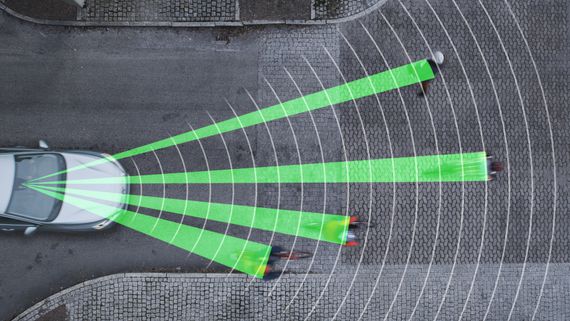Automaker Volvo has announced that it is developing the ‘no death’ car – the ultimate in safe vehicles. The company said it has plans to develop and produce cars that are capable of driving themselves, and they will be completely crashproof. If all goes according to plan, these vehicles could be driving down UK roads sometime within the next eight years.
So exactly how will these cars be crashproof? Well, first of all, Volvo plans to fit the vehicles with special sensors. These will be capable of detecting any potential collisions. In the event of an impending crash, the on board computer will take evasive action. Volvo has made a very bold claim that by 2020, nobody will be injured or killed in any of its new cars. That’s a lot to live up to!
Volvo says that the computerised ‘no death’ cars are incapable of being steered into any objects, due to the high tech sensors. This isn’t just hot air however, because the company has firmly stated that the ‘no death’ car is definitely due to make its appearance by 2020. As the life saving technology is being developed, it will be incorporated into new models. This means that consumers will start having access to new Volvo’s with some of these crashproof features from 2014 onwards.
Anders Eugensson, Volvo’s head of government affairs, said the company has a vision. This vision is to ensure that nobody will be injured or killed in a new Volvo by the year 2020. The first generation of Volvo’s crash free cars will be designed for driving short distances in towns, and the top speed will be 31mph. These will be fully equipped to deal with all the demands of heavy traffic in an urban environment.
Volvo isn’t the only automaker to be aiming for the ultimate goal of a completely accident free, self driving car. Mercedes-Benz, BMW and Ford are also working on autonomous cars. Self driving cars like the ones we have seen in science fiction films such as I, Robot could become a reality much sooner than you’d think. Even internet giant Google are in on the act.
So far, it’s not the technology that’s holding back the self drive, crashproof car, it’s public opinion! People have their reservations about placing their safety in inanimate object. Also, if a crash proof car did have a collision, who would be liable? Would it be the manufacturer or driver? People want to know the answers to these kinds of questions. However, Volvo’s Anders Eugensson wants to put people’s minds at rest. The prototypes have been tested and driven for literally thousands of miles on Spanish public roads, as well as the company’s own test track.
He used an interesting analogy. The crashproof car will be like a work horse. You can steer the horse, but if you happen to nod off, the horse won’t just carry on regardless and walk into a tree or off a cliff!
Volvo has been going for 85 years now, and the company prides itself on its hard earned reputation for designing and manufacturing some of the world’s safest cars. The first crashproof cars for urban driving, with a top speed of 31mph should be launched sometime in 2014. Completely accident free Volvo’s capable of reaching higher speeds should be a reality by 2020.
At the moment, international legislation under the Vienna Convention on Road traffic has certain blocks concerning autonomous vehicles. The driver must remain in control of their car at all times. However, moves are currently afoot to amend the law to allow the development of these vehicles. Advances in technology means that it’s now safe to design and build a self driving, collision free car.
So far, 50 engineers from Volvo’s automotive partners have been busily working on the company’s crashproof technology. This includes names such as Ricardo UK. The crashproof car prototypes have already been tested successfully on public roads. This is why Volvo’s head of developing driver assistance technology, Marcus Rothoff, says he is certain that self drive crashproof cars are the future of motoring. Volvo wants to be the first to reach that destination.
Sceptics are already criticising Volvo’s aim as being a pipe dream. However, Volvo bosses are quick to retort that automatic braking systems, self parking cars and satellite navigation are all high tech features that are available today. So, why should self driving, crashproof technology be any different?
We’re already seeing some amazing engineering and technology in new cars. In fact, Mercedes-Benz is launching its next generation flagship model, the S Class. The car is all set to go on sale in the early part of next year. The vehicle will come with a self braking system. The fact that it is capable of operating at a top speed of 124mph on Germany’s autobahns makes this technology truly noteworthy. Meanwhile, Google, internet search giant has been working away on its own self driving prototype car since 2010.


